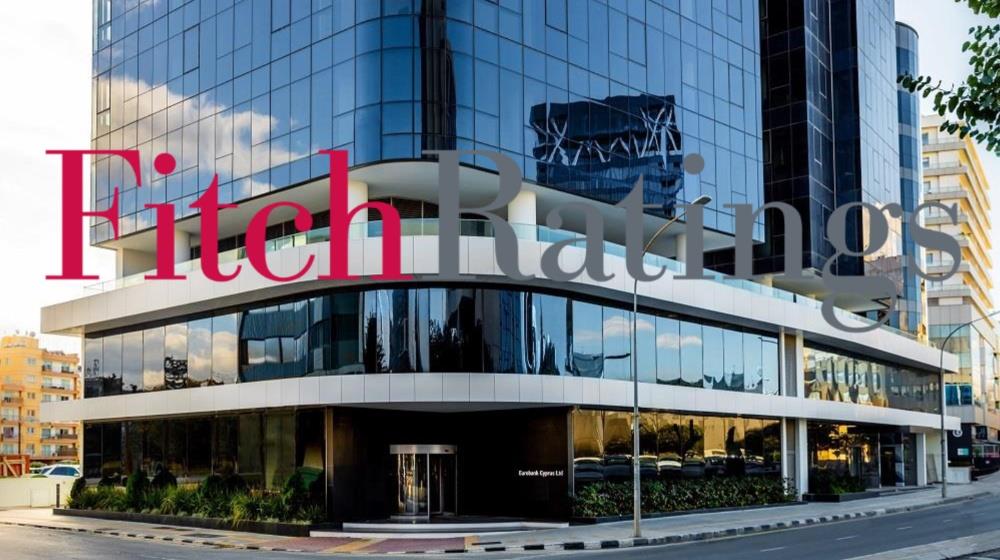Fitch Ratings has upgraded Eurobank Limited's Long-Term Issuer Default Rating (IDR) to 'BBB' from 'BBB-' and Viability Rating (VR) to 'bbb' from 'bbb-'.
As noted in Fitch Ratings' report, "The Outlook on the Long-Term IDR is Stable".
According to the same report, "The upgrade reflects the improvement of the Cypriot operating environment score to 'bbb', which reflects our assessment of improved business and financial prospects for Cypriot banks due to continued economic growth and falling unemployment and private sector indebtedness."
"The upgrade also factors in Eurobank Ltd's strengthened business profile following the merger with Eurobank Cyprus Ltd and the acquisition of CNP Assurances SA's (A-/Stable) Cypriot insurance business, which result in increased revenue diversification in insurance and corporate and private banking, and stronger market shares in Cyprus," Fitch Ratings said.
Key Rating Drivers as included in Fitch Ratings report:
"Franchise, Capital Underpin Ratings: Eurobank Ltd's Long-Term IDR is driven by its VR, which reflect its strong competitive position in Cyprus, stable deposit-based funding and robust liquidity. The VR also reflects healthy profitability prospects in a positive interest rate environment, above-average regulatory capital ratios and materially improved asset quality.
Eurobank Ltd is rated one notch above its parent, Eurobank S.A. (BBB-/Positive/bbb-), reflecting Fitch's view of modest contagion risk in case of a marked deterioration in Eurobank S.A.'s credit profile. This is due to Eurobank Ltd's limited direct exposure to the parent, independent franchise and our expectations that it will maintain robust capital buffers.
Improved Operating Environment: We expect continued growth of the Cypriot economy, coupled with low unemployment and good evolution in key sectors, to support business opportunities for banks, resilient asset quality and sustainably sound profitability.
Strong Domestic Franchise: The merger with Eurobank Cyprus Ltd has strengthened the bank's strong domestic franchise and improved loan diversification, which has traditionally focused on the household segment. Revenue diversification through fee-generating and insurance activities has been limited but will improve following the acquisition of CNP's Cypriot insurance activities.
Prudent Underwriting Standards, Moderate Concentration: Fitch believes Eurobank Ltd's underwriting standards are broadly in line with industry standards and that risk controls and tools are adequate for the bank's complexity. Eurobank Ltd is exposed to some concentration risk due to its small size and the composition of the local economy, which has increased due to Eurobank Cyprus's focus on corporate lending. However, we believe the bank adequately mitigates these risks through client selection and collateralisation.
Reduced Impaired Loan Ratio: The impaired loan ratio (Stage 3 loans plus non-performing purchased or originated credit impaired loans/gross loans, and excluding those impaired loans guaranteed by the asset protection scheme) of 1.9% at end-September 2025 is well below historical peaks and should remain below 2.5% in the next two years, broadly in line with the European average. Our asset-quality assessment also considers the high quality, large pool of non-loan assets, including cash and debt securities, and its small stock of foreclosed properties.
Profitability to Remain Sound: Eurobank Ltd's very strong operating profit has been supported by high net interest income on the bank's large cash holdings and securities, some loan repricing and small loan impairment reversals. Strong revenue allowed the bank to more than offset moderate cost inflation.
Operating profit/risk-weighted assets (RWAs) will decline in 2025 (2024: 7.4%) due to lower interest rates but should remain strong by European standards. We expect profitability to benefit in 2026-2027 from healthy loan growth, a larger and longer-dated securities portfolio, moderate loan impairment charges and realisation of synergies, including accelerated development of the bank's fee-generating and insurance businesses.
Sound Capital Buffers, Possible Optimisation: The common equity Tier 1 (CET1) ratio of 36.4% at end-September 2025 was well above regulatory requirements and most European peers. Potential capital upstreaming to Eurobank S.A. could pressure capitalisation, but we expect it to remain adequate and well above requirements.
Deposit-Based Funding, Sound Liquidity: Deposits are highly granular, mostly retail and well in excess of loans (reported loans/deposits ratio of 37% at end-September 2025), resulting in ample liquidity and limited funding diversification. Issuance of wholesale debt to comply with minimum requirement for own funds and eligible liabilities is being centralised at Eurobank S.A. and will be downstreamed to Eurobank Ltd through intercompany instruments as required."
Shareholder Support Rating (SSR)
Also, according to Fitch Ratings, the Shareholder Support Rating (SSR) is in line with Eurobank S.A.'s Long-Term IDR as in Fitch's view a default of the subsidiary would entail huge reputational risk for Eurobank S.A. This is based on their common regulation and Eurobank's Ltd inclusion in Eurobank's single-point-of-entry resolution strategy.
"Our assessment also reflects our view that Eurobank S.A.'s propensity to provide support has improved after it achieved full ownership of Eurobank Ltd and proceeded with the merger of its Cypriot subsidiary," the report said.
Read the full report here.









